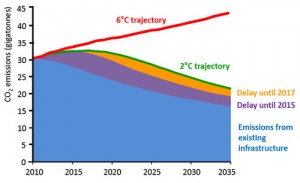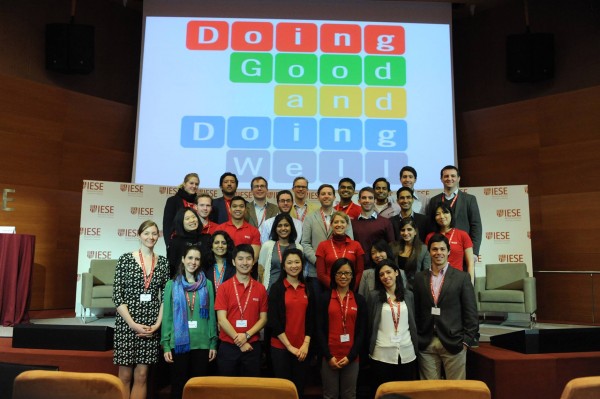The theme of this year’s Doing Good Doing Well conference was responsible business and, as happens every year, I was blown away by the commitment and passion of IESE’s MBA students who have been running this conference since 2001.
One interesting aspect of this event is that each year interested first year students help out with logistics and organization and then some of them move on to take leading roles in next year’s conference and set its goals, directions and topics.
I actually took part in the discussion of the students who put together the first conference 15 years ago and am amazed that the title has been broad enough to cover the different topics that have come up as the focus over all these years. This year, the conference chair and her team chose Responsible Business as the overall theme.
Responsible Business
The question is what is a responsible business? Do responsible companies do business with tyrants and Mafia states as discussed in last week’s post concerning Venezuela? Are they committed to environmental sustainability and social justice?
While the topic received a number of different responses from very different people in terms of environmental sustainability perhaps the sharpest contrast was provided by Jo Confino, chairman and editorial director of Guardian Sustainable Business and Todd Onderdonk, Senior Energy Advisor in ExxonMobil’s Corporate Strategic Planning Department.
Fortunately the two did not actually coincide on the same panel but their contrasting views are worth taking the time to repeat.
The view from the Media

I had Jo Confino on a panel together with one of the New York Time‘s most interesting reporters, Chris Schuetze. For Chris, a responsible business was one which looked ahead 50 or even 100 years and took care to balance the needs of the firm with that of society. Jo went even further and spoke about what I would call post industrial ethics and spirituality. For him the issue of climate change threatens the human race and thus any and all measures need to be taken to sharply reduce our carbon footprint. In a column he recently blasted Barclays for continuing to provide financing for the coal industry which he feels should be encouraged to disappear!
The view from ExxonMobile

Todd Onderdonk has been with Exxon for 35 years and is the lead author of its report The Outlook for Energy: A View to 2040 which he presented to the conference. For Onderdonk, Exxon Mobile is a responsible business because it strives to provide its customers with the energy they need to run their life and works to do that in the most environmentally friendly and socially progressive way that it can.
The Outlook goes through reasonable assumptions about economic growth and population in different parts of the world and comes up with a picture of how the needs and supply of energy will play out over the next forty years. One of the assumptions is that there will eventually be a cost of carbon of about $60/ton which will incentivize increased energy efficiency and the development of renewables. The other is that emerging economies such as India and China will rely heavily on fossil fuels for significant parts of their growing energy needs without which they will not be able to bring economic prosperity to their people.
No Middle Ground
 From the point of view of an environmentalist like Jo, Exxon’s argument is simply invalid as the idea that we should burn so much fossil fuels is unacceptable. The Guardian recently published an article which cites a report indicating that about 2/3 of known reserves should be left in the ground to avoid a devastating 6 degree increase in world temperatures.
From the point of view of an environmentalist like Jo, Exxon’s argument is simply invalid as the idea that we should burn so much fossil fuels is unacceptable. The Guardian recently published an article which cites a report indicating that about 2/3 of known reserves should be left in the ground to avoid a devastating 6 degree increase in world temperatures.
Exxon would say that they and their competitors represent less than 15% of the global oil and gas industry and that India and China will do what they need to do for their societies in any case. They will at least curb atmospheric flaring, promote carbon sequestration, and take other steps to make sure their operations have a relatively low footprint and are as safe as they can make them.
At the heart of the contrast is a very different understanding of the starting point for a discussion about business and the environment. For environmentalists, business is is part of the problem and can not be part of the solution. This attitude is difficult for business people to even understand as they believe strongly in the value of what they do and while they acknowledge that they are environmental problems, they also have a deep faith about the potential of modern technology to solve them before things get out of hand.
My view, is that only business can lead the way on this and the challenge is to figure out how to engage Sr. Management.


